I discovered I had bibliophilic tendencies when I was a child, and though I’d like to attribute this trait to precocious proclivities, it was more likely the personal pan pizza BOOK IT!® awards my elementary school gave out for reading. I grew up on a household where fast food was a luxury my single mother could not afford. So, in order to earn a dinnertime treat for my sisters and me, I would obsessively read.
The incentive program eventually paid off in more than individual-sized pizzas; it turned me into a lifelong, avid reader. Today, I actively read no fewer than four books at a time, with a stack of ten or more in reserve. I keep fiction in the mix to maintain creative sanity, scholarly writing to encourage new ways of thinking, memoir fulfills my desire to hear intimate stories, and bestselling nonfiction is excellent fodder for conversation among strangers. I like to have a variety of options from which to choose depending on my mood, and I keep books in various locations — my bag, next to the bed, in the kitchen — so I can access them with ease.
Books are both a comfort and a challenge. Although the completest in me makes every effort to read each one from beginning to end, pragmatism alleviates the guilt of setting a partially finished novel or dry bestseller aside. Life’s too brief to trudge through prose you don’t find pleasing or short stories that put you to sleep. On Saturday I entered my thirty-third year, and I’m celebrating by sharing thirty-three quotes from works I’ve gained something from reading. Perhaps you’ll gain something by reading them, too.
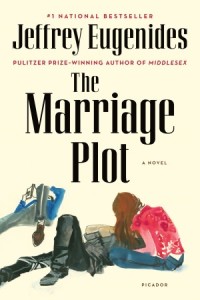 “She wanted a book to take her places she couldn’t get to herself. She thought a writer should work harder writing a book than she did reading it.” ― Jeffrey Eugenides, The Marriage Plot
“She wanted a book to take her places she couldn’t get to herself. She thought a writer should work harder writing a book than she did reading it.” ― Jeffrey Eugenides, The Marriage Plot
“Being comically generative and having a sense of humor are one and the same thing. The former is among the least important things in the world, while the latter is among the most. One is a handy social tool, the other an integral component of human survival.… Not being funny doesn’t make you a bad person. Not having a sense of humor does.” ― David Rakoff, Fraud: Essays
“Empathy has the potential to be the first, crucial step on the way to solidarity — not just feeling someone else’s pain, but working together to try and cure it.” ― Gary Younge, Who Are We ― and Should It Matter in the 21st Century?
“It’s alright that there are things you do not get over, not really. You just go on, knowing that the things you love could be stripped from you at any moment, remembering to love them now. It makes you human. You try to be decent and treat people gently, knowing that they, too, have their scars and madnesses that, like yours, do not show.” ― Joy Castro, The Truth Book
“I am the sum total of everything that went before me, of all I have been seen done, of everything done-to-me. I am everyone everything whose being-in-the-world affected was affected by mine. I am anything that happens after I’m gone which would not have happened if I had not come. Nor am I particularly exceptional in this matter.” ― Salman Rushdie, Midnight’s Children
“If you’re an introvert, find your flow by using your gifts. You have the power of persistence, the tenacity to solve complex problems, and the clear-sightedness to avoid pitfalls that trip others up. You enjoy relative freedom from the temptations of superficial prizes like money and status. Indeed, your biggest challenge may be to fully harness your strengths. You may be so busy trying to appear like a zestful, reward-sensitive extrovert that you undervalue your own talents, or feel underestimated by those around you. But when you’re focused on a project that you care about, you probably find that your energy is boundless. So stay true to your own nature.” — Susan Cain, Quiet: The Power of Introverts in a World That Can’t Stop Talking
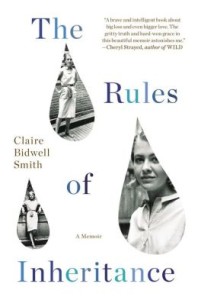 “Even in the moments when you don’t think you are moving forward, you really are.” — Claire Bidwell Smith, The Rules of Inheritance
“Even in the moments when you don’t think you are moving forward, you really are.” — Claire Bidwell Smith, The Rules of Inheritance
“Writing is hard for every last one of us.… Coal mining is harder. Do you think miners stand around all day talking about how hard it is to mine for coal? They do not. They simply dig.” — Cheryl Strayed, Tiny Beautiful Things: Advice on Love and Life from Dear Sugar
“The sun is always there, even if the clouds are covering it.” — William Dalrymple, Nine Lives: In Search of the Sacred in Modern India
“Don’t push too hard; your last chance to see a person the way you wanted them to be may come at any moment.” — Danielle Evans, Before You Suffocate Your Own Fool Self
“Dialogue cannot exist without humility. The naming of the world, through which people constantly re-create that world, cannot be an act of arrogance. How can I dialogue if I am closed to — and even offended by — the contribution of others? How can I dialogue if I am afraid of being displaced? Dialogue requires an intense faith in humankind, faith in their power to make and remake, to create and re-create, faith in their vocation to be more fully human (which is not the privilege of an elite, but the birthright of all).” — Paulo Freire, Pedagogy of the Oppressed
“I believe in fiction and the power of stories because that way we speak in tongues. We are not silenced. All of us, when in deep trauma, find we hesitate, we stammer; there are long pauses in our speech. The thing is stuck. We get our language back through the language of others. We can turn to the poem. We can open the book. Somebody has been there for us and deep-dived the words.” ― Jeanette Winterson, Why Be Happy When You Could Be Normal?
“The experience of cross-cultural living reminds us, not in an intellectual way, but in a firsthand way — full of wincing, shame, hope, and disappointment (and often laughter, both at us and by us) — that, in fact, we know very little about the way things really are.” — Sarah Davis, Being There: Learning to Live Cross-Culturally
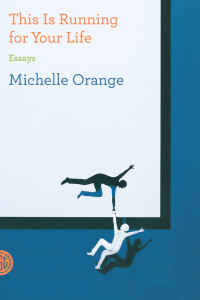 “We must find a way to continue dreaming of each other. If it seems simple, it should. If we could just rest our minds a minute, it might even be easy. The more difficult it gets to clear the necessary space, the more necessary that space becomes.” — Michelle Orange, This Is Running For Your Life
“We must find a way to continue dreaming of each other. If it seems simple, it should. If we could just rest our minds a minute, it might even be easy. The more difficult it gets to clear the necessary space, the more necessary that space becomes.” — Michelle Orange, This Is Running For Your Life
“I want my past to remain vital to me because I need to keep learning its lessons.” — Annette Kolodny, True Confessions: Feminist Professors Tell Stories Out of School
“We do not need to become each other in order to work together. But we do need to recognize each other, our differences as well as the sameness of our goals. Not for altruism. For self-preservation — survival. Every day of your lives is practice in becoming the person you want to be. No instantaneous miracle is suddenly going to occur and make you brave and courageous and true.” — Audre Lorde, I Am Your Sister
“The assumption that if somebody commits a serious crime they have to go to prison is based on the idea that crime is a deviant form of behavior and criminals should be separated from the rest of society. I understood crime as a process, not an isolated action or deviance from correct behavior, but rather the consequence of a system that produces a criminal class and also benefits from it.” — Jana Leo, Rape New York
“They stood up, his hand still in hers, and went inside. Somehow, without saying anything, it had turned into this. Into an exchange of confessions — the little ways they’d hurt or disappointed each other, and themselves.” — Jhumpa Lahiri, Interpreter of Maladies
“Life changes fast. Life changes in the instant. You sit down to dinner and life as you know it ends.” — Joan Didion, The Year of Magical Thinking
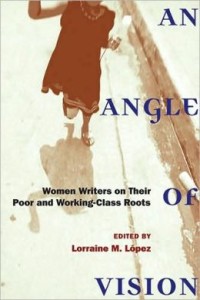 “I took it as a given that women like me would have to do it the hard way, steal time away from my day job, work without an editor or ready reader, and never have any confidence that what I was writing would be anything that anyone would want to read. But I never considered not writing.” — Dorothy Allison, An Angle of Vision: Women Writers on Their Poor and Working-Class Roots
“I took it as a given that women like me would have to do it the hard way, steal time away from my day job, work without an editor or ready reader, and never have any confidence that what I was writing would be anything that anyone would want to read. But I never considered not writing.” — Dorothy Allison, An Angle of Vision: Women Writers on Their Poor and Working-Class Roots
“She placed both hands on his shoulders and gazed at him for a long time with a deep, rapturous, and at the same time searching look. She studied his face to make up for the time in which she had not seen him. As at every meeting, she was bringing together her imaginary idea of him (an incomparably better one, impossible in reality) with him as he was.” — Leo Tolstoy, Anna Karenina
“A society’s social policies should support morally justified reproductive needs and choices and provide assistance in acting on them. Individuals making choices about procreation should not and cannot be regarded as acting in a social void.” — Christine Overall, Why Have Children? The Ethical Debate
“I care because I want you to care about me. I care because I have become aware of my absolute dependency upon you, whoever you are, for the quality and the outcome of my social, my democratic experience.” — June Jordan, Some of Us Did Not Die
“There is no way to do it right. You cannot have it all. Something has to give. You won’t know what it was you gave up until it is too late to recover.” — Danzy Senna, You Are Free
“One morning I awoke to find that, during the course of the night, my mind had completely ejected the names of all the streets in Pakistan, as though to assure that I could not return, or that if I did, it would be returning to a loss.” — Sara Suleri Goodyear, And the World Changed: Contemporary Stories by Pakistani Women
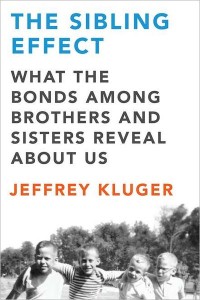 “Growing up in a house full of siblings and failing to make the most of that lucky accident of birth is like inheriting a thousand acres of fertile farmland and never planting it. You can always get your food elsewhere, but think of what you’re allowing to lie fallow.” — Jeffrey Kluger, The Sibling Effect: What the Bonds Among Brothers and Sisters Reveal About Us
“Growing up in a house full of siblings and failing to make the most of that lucky accident of birth is like inheriting a thousand acres of fertile farmland and never planting it. You can always get your food elsewhere, but think of what you’re allowing to lie fallow.” — Jeffrey Kluger, The Sibling Effect: What the Bonds Among Brothers and Sisters Reveal About Us
“The demand for women’s safety is inevitably articulated in terms of surveillance and protectionism and contributes to reducing rather than expanding women’s access to public space.” — Shilpa Phadke, Why Loiter? Women and Risk on Mumbai Streets
“She’s not your servant. She is your key to the culture. Don’t mix the two.” — Adele Baker, Not Quite Paradise: An American Sojourn in Sri Lanka
“At first, as they stood there, their hands were clenched together. They relaxed slowly until during the walk back home their fingers were laced in as gentle a clasp as that of any two young girlfriends trotting up the road on a summer day wondering what happened to butterflies in the winter.” ― Toni Morrison, Sula
“Writing is an activity that colludes with you. It’s absorbing, gratifying, and creates the powerful illusion of escape to another world, another existance. At the same time, it’s keeping you exactly where you are, wasting time, not really changing anything. But the alchemy of publication can sometimes achieve that.” ― Carrie Jones, Cutting Up Playgirl
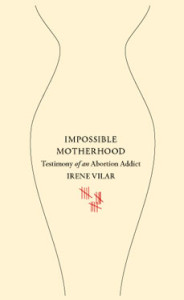 “The language of choice invokes free will based on individual freedom, obscuring the interplay between social constraints and human activity. Choices are primed by larger institutional structures and ideological messages.” ― Irene Vilar, Impossible Motherhood: Testimony of an Abortion Addict
“The language of choice invokes free will based on individual freedom, obscuring the interplay between social constraints and human activity. Choices are primed by larger institutional structures and ideological messages.” ― Irene Vilar, Impossible Motherhood: Testimony of an Abortion Addict
“This was what I required of love: an equality in which no one accused the other of being an irrational female, or an oblivious male. We both understood that we shared the burden of being flawed.” ― Carlene Bauer, Not That Kind of Girl
“For us, writing isn’t a career so much as it is a vocation, a life saver, a way to prove, to ourselves at least, that we actually exist, that our struggles aren’t for nothing, that our lives are meaningful, are triumphant. We write to release old injustices and abuses, to make sense of them, to contextualize ourselves. We write to tell the truth…so that we can finally see our experiences portrayed honestly, in many dimensions.” — Michelle Tea, Without a Net: The Female Experience of Growing Up Working Class
Mandy Van Deven Mandy Van Deven was previously In The Fray’s managing editor. Site: mandyvandeven.com | Twitter: @mandyvandeven
- Follow us on Twitter: @inthefray
- Comment on stories or like us on Facebook
- Subscribe to our free email newsletter
- Send us your writing, photography, or artwork
- Republish our Creative Commons-licensed content

